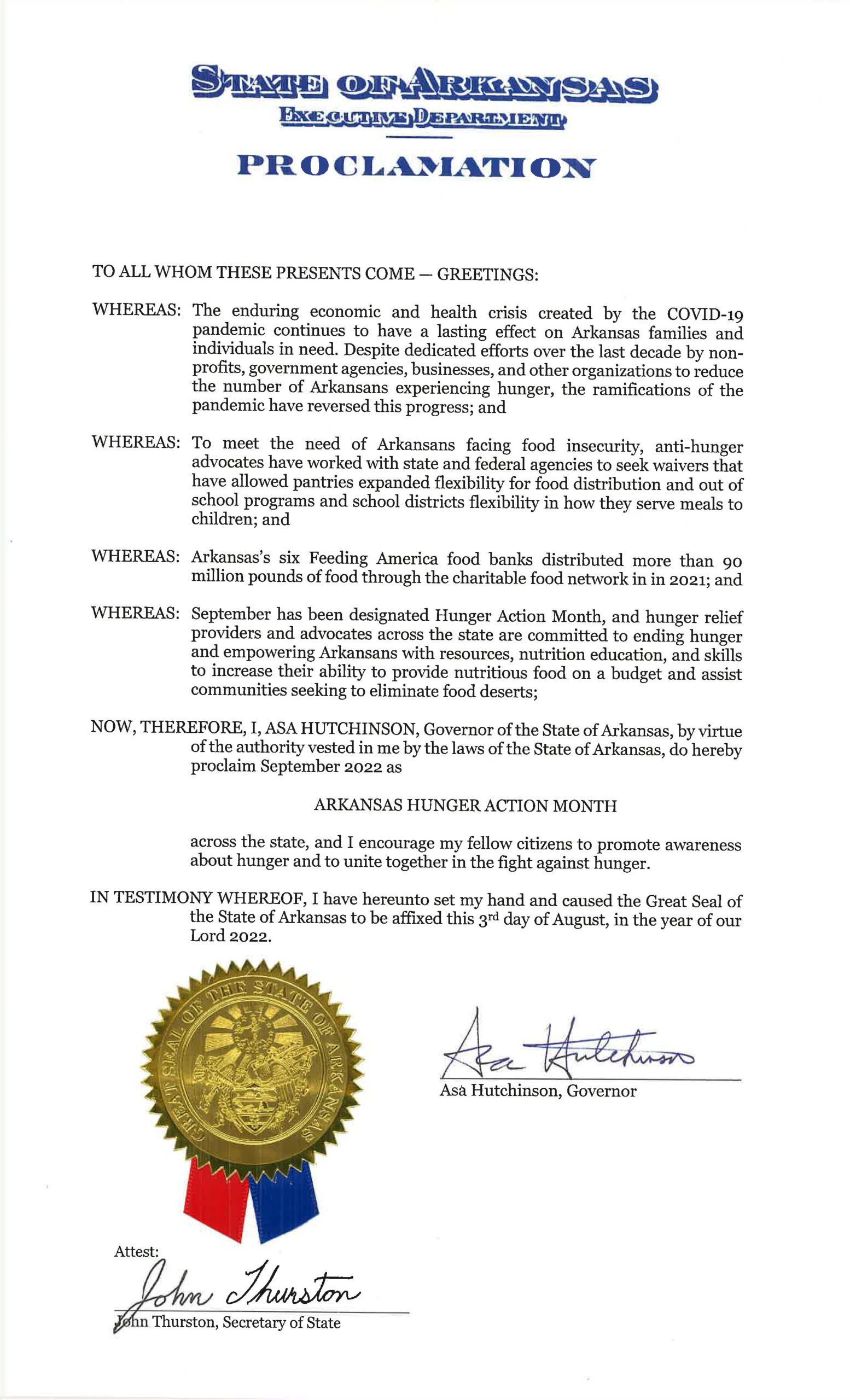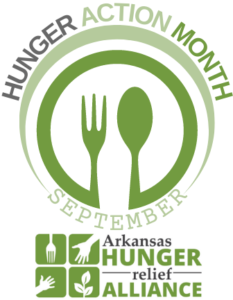This September, communities across the country are committing to fight hunger. With every action, we get one step closer to our vision of a hunger-free Arkansas.
How can you help your community?
Here are six ways you can participate!

Governor Hutchinson proclaims September as Hunger Action Month in Arkansas.
1. Pledge to help end hunger!
No one should go hungry yet so many Arkansans—including children, college students, seniors, veterans, and active U.S. service members—face hunger. Take the first step by pledging with our partner Feeding America to help end hunger in your community. Follow this link!
2. Learn and share hunger facts.
Hunger is an issue in our state. According to Feeding America’s Map the Meal Gap report, 444,130 people are facing hunger in Arkansas and of those, 138,410 are children. Families in every county struggle with food insecurity, and during the pandemic, food banks and pantries have been serving even more people. Learn about hunger in your community and then share with your social network. See your county’s hunger statistics HERE.
3. Fundraise for Hunger Action Month.
Invite your friends and family to join in the fight to end hunger by donating to local hunger relief organizations. Donate to the Alliance or join in our Hunger Action Month special shopping events and support local businesses while supporting the Alliance. You can also purchase a ticket to Hunger Action

Breakfast and support other hunger relief organizations and individuals. There are plenty of other easy ways to support your local pantry, ask if they have an Amazon Wishlist!
4. Become a volunteer.
So many local hunger relief organizations rely on volunteer support. If you can’t donate funds, maybe you want to donate your time. Spending a few hours each month volunteering can make an enormous difference. Pledge to volunteer, then find your local hunger relief organization and sign up! We need volunteers to help us with Hunger Action Breakfast. Would you like to help?
5. Donate food!
Your food donations help! Knowing what to donate to your local food bank and/or pantry is important. Certain food donations are not allowed by the Health Department: perishable foods, glass jars and bottles, homemade items, alcohol, expired food, baby food, opened jars or containers, non-canned seafood, and pet food. As a general rule, only donate non-glass, shelf-stable foods. Low sodium, low sugar and whole grain options are preferred. Donate new canned goods, including meats and fish, vegetables, fruits, and soups. Meal mixes are always welcome, including pasta skillet meals, canned pasta, rice and dry beans. Breakfast items like cereal, granola bars, instant oatmeal, toaster pastries, nuts and nut butters are needed. Water and 100% fruit juices
and juice boxes are good donation items as well.
6. Advocate to end hunger.
Tell our lawmakers to support strong federal food assistance programs. Did you know the upcoming Farm Bill is the core federal legislation for food and farming? It impacts access to nutritious food for people struggling with hunger. Please join us in supporting a strong Farm Bill and during Hunger Action Month, ask your legislators to back a Farm Bill that ensures our neighbors have the food they need.


